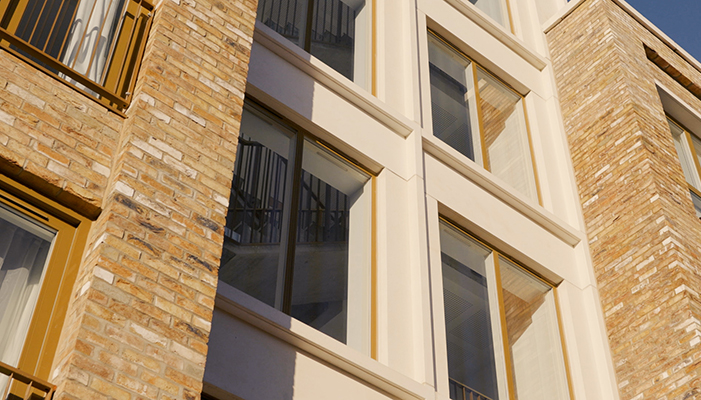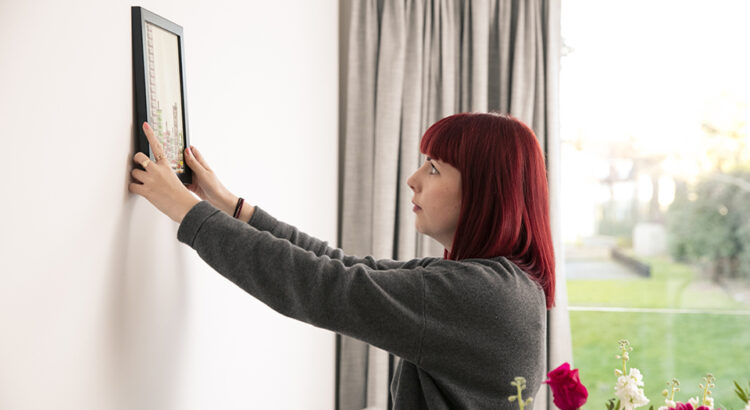Did you know that a deposit is the biggest thing you need to save for in the home buying process? This can seem a bit daunting if you’re a first time buyer, especially if you’re not sure how big of a deposit you need or how to save for a deposit.
We’ve put together the ultimate guide on first time buyer mortgage deposits to get you on your way to homeownership, written especially with middle income earners in mind. Covering why a deposit is so important and what to do if you haven’t saved enough, this guide will help you put together a plan for saving for your first home.
What is a mortgage deposit?
First things first – a mortgage deposit is the upfront cash payment on a home. It comprises of money that you’ve saved or been gifted, and will make up a percentage of the home you buy. So, if you want to buy a £200,000 property and you have a £20,000 deposit, you have £180,000 left to cover by way of a mortgage.
Why is a mortgage deposit important? When you take out a mortgage with a lender, you are typically borrowing a pretty large amount. The average mortgage for a first time buyer in the UK is £198,779! This obviously represents a risk to the lender. To reduce the risk, lenders will ask that you put in a percentage of the sale price as a deposit.
How much do I need for a mortgage deposit?

Most lenders typically require that you have between a 5-10% deposit ready when you want to buy your property. If you are buying a new build property, however, the deposit requirement is more likely to be 15-20%. So, if you wanted to buy a £200,000 property, you would probably need between £10,000 – £20,000 for your down payment if it was a second-hand property, or £30,000 – £40,000 if it was a new home.
Sometimes, the deposit required from you by a lender will depend on your individual circumstances, such as credit score or residency status. 100% LTV mortgages no longer exist, so you will need to have something saved or use a scheme that allows you to build a deposit through other means.
Is a larger mortgage deposit better?
In short, yes. The golden rule of house deposits is the bigger the better! Here are a few reasons why you should save as much as possible for your deposit:
Better interest rates: With a larger deposit, you are more likely to get better interest rates. This is because when you offer a larger deposit to the lender, you are seen as less of a risk, meaning that they will likely offer you better interest rates.
Smaller LTV: With a larger deposit, you will have a smaller LTV (loan to value ratio). This basically means that you will have a smaller loan to pay off in the long term. So, if you had an £80,000 deposit for your £200,000 property, you would have a 60% LTV, with a loan of £120,000 left to pay on your mortgage.
Avoiding negative equity: Negative equity is when the value of the property becomes less than the amount of money you still owe on your mortgage. For example, if you have bought your £200,000 property with a 10% deposit (£20,000), this means that you have a mortgage value of £180,000. If there was a fall in the value of your property to below your mortgage value (say from £200,000 to £150,000), you would be in negative equity, as the value of your home is less than the remaining amount on your mortgage. If you had a larger deposit of £80,000, your mortgage value would be £120,000, and so if your property value fell to £150,000, you would not be in negative equity as your mortgage is still less than the new value of your property. Negative equity can cause problems if you need to sell your property.
For many people, however, getting on the property ladder – even with a lower deposit – will mean they are paying less per month on their mortgage than they otherwise would on their rent. Plus, they are building equity in the home as the mortgage is gradually paid off and stand to benefit from future increases in the property’s value.
How to save for a deposit

Setting money aside for a deposit can be very challenging, especially with the high costs of renting as well as life getting in the way. A lifetime individual savings account (LISA) allows you to save up to £4,000 a year towards your first home. The Government then adds an extra £1,000 a year on top. You can find out more about how to save for a deposit here.
What if the deposit you’ve saved isn’t enough? If you’re struggling to save a large enough deposit for your dream home, you’re not alone. In fact, a third of first time buyers struggle to save a deposit for their first home.
One option to consider is getting a Deposit Boost with Tembo. Tembo’s Deposit Boost offers a solution for families who wish to redistribute wealth across the generations but do not have the cash to hand. That means if you have a family member that owns a property but does not have access to lump sums of cash, they can use a Deposit Boost to unlock money that has built up in a family member’s property and is then used to top up or create a home buyer’s deposit.
We hope this guide to first time buyer mortgage deposits has helped you think about the different routes to homeownership available to you. Our Pocket discounted homes are sold only to those on middle incomes who may otherwise struggle to get onto the housing ladder, so register for a My Pocket account if you’re interested in seeing if you’re eligible.
You can watch stories of other first time buyers who struggled to get onto the housing ladder in London here.
